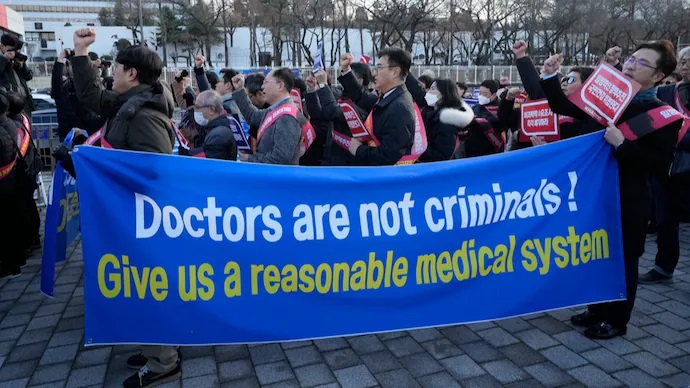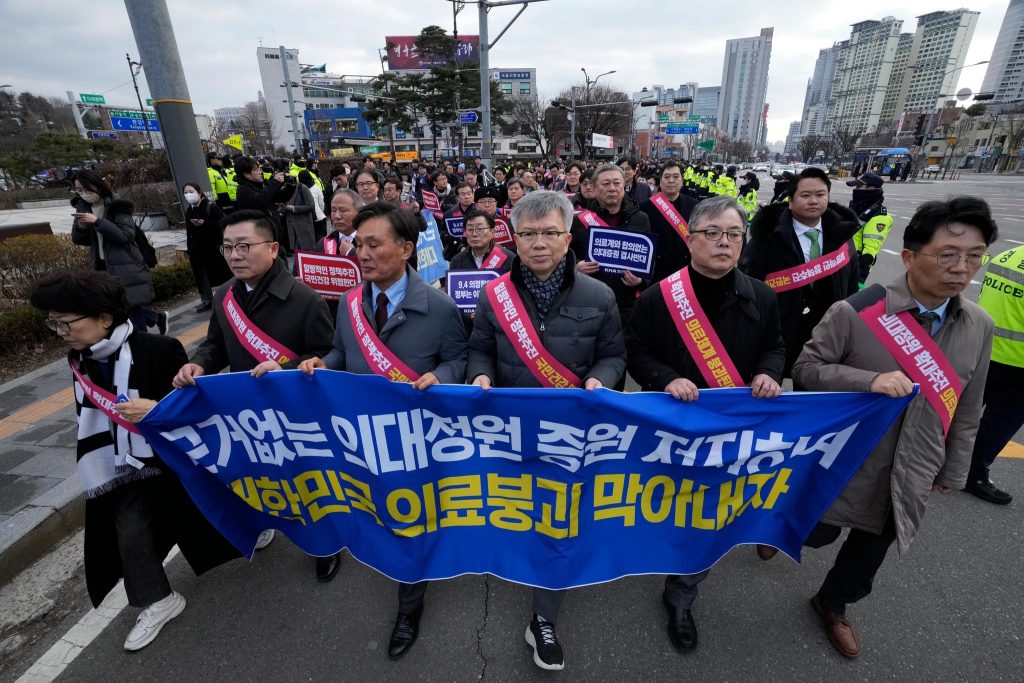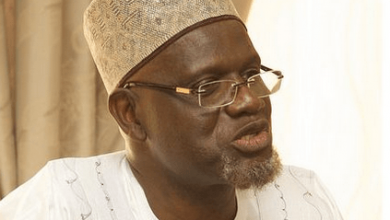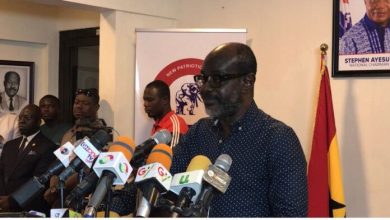South Korean government threatens striking doctors of arrest if they do not return to work

South Korea’s government is issuing warnings of legal action against thousands of striking junior doctors and threatening to revoke their medical licenses if they fail to return to work by Thursday.
Approximately three-quarters of the country’s junior doctors have participated in the strike over the past week, leading to disruptions and delays in surgeries at major teaching hospitals.
The trainee doctors are protesting against government proposals to significantly increase the number of medical students admitted to universities each year in order to address the shortage of doctors in the system.
South Korea currently has one of the lowest doctor-to-patient ratios among developed countries, and with an aging population, the government fears there will be a severe shortage within the next decade.
The empty hallways of St Mary’s Hospital in Seoul offer a glimpse of what the future might hold, with a scarcity of doctors and patients in the triage area outside the emergency room, prompting warnings for patients to avoid seeking care.
Ryu Ok Hada, a 25-year-old doctor, and his colleagues have been absent from work at the hospital for over a week, with Ryu remarking, “It feels weird not getting up at 4 a.m.”
He describes the demanding work hours of junior doctors, often exceeding 100 hours per week, with stretches of up to 40 hours without sleep, highlighting the disproportionate workload compared to their pay.
While doctors’ salaries in South Korea are relatively high, Ryu argues that junior doctors can end up earning less than the minimum wage due to their extensive work hours.
He believes that simply increasing the number of doctors will not address the underlying structural issues within the healthcare system that lead to overwork and low pay.
Healthcare in South Korea is predominantly privatized but remains affordable.

However, junior doctors argue that the pricing structure favors less essential treatments, such as cosmetic surgeries, over emergency and life-saving procedures.
This imbalance has resulted in a concentration of doctors in urban areas, leaving rural regions understaffed and emergency rooms overwhelmed.
Ryu, who has been practicing for a year, contends that trainee and junior doctors are being exploited for their cheap labor by university hospitals, where they constitute a significant portion of the workforce.
The strike has led to a significant reduction in surgical capacity at some hospitals, mainly affecting planned procedures, although isolated incidents of critical care disruptions have been reported.
Last Friday, an elderly woman reportedly died in an ambulance after being refused treatment by seven hospitals.
The government has dismissed claims that her death was related to the strike, citing her terminal cancer as the cause.
Source-BBC





